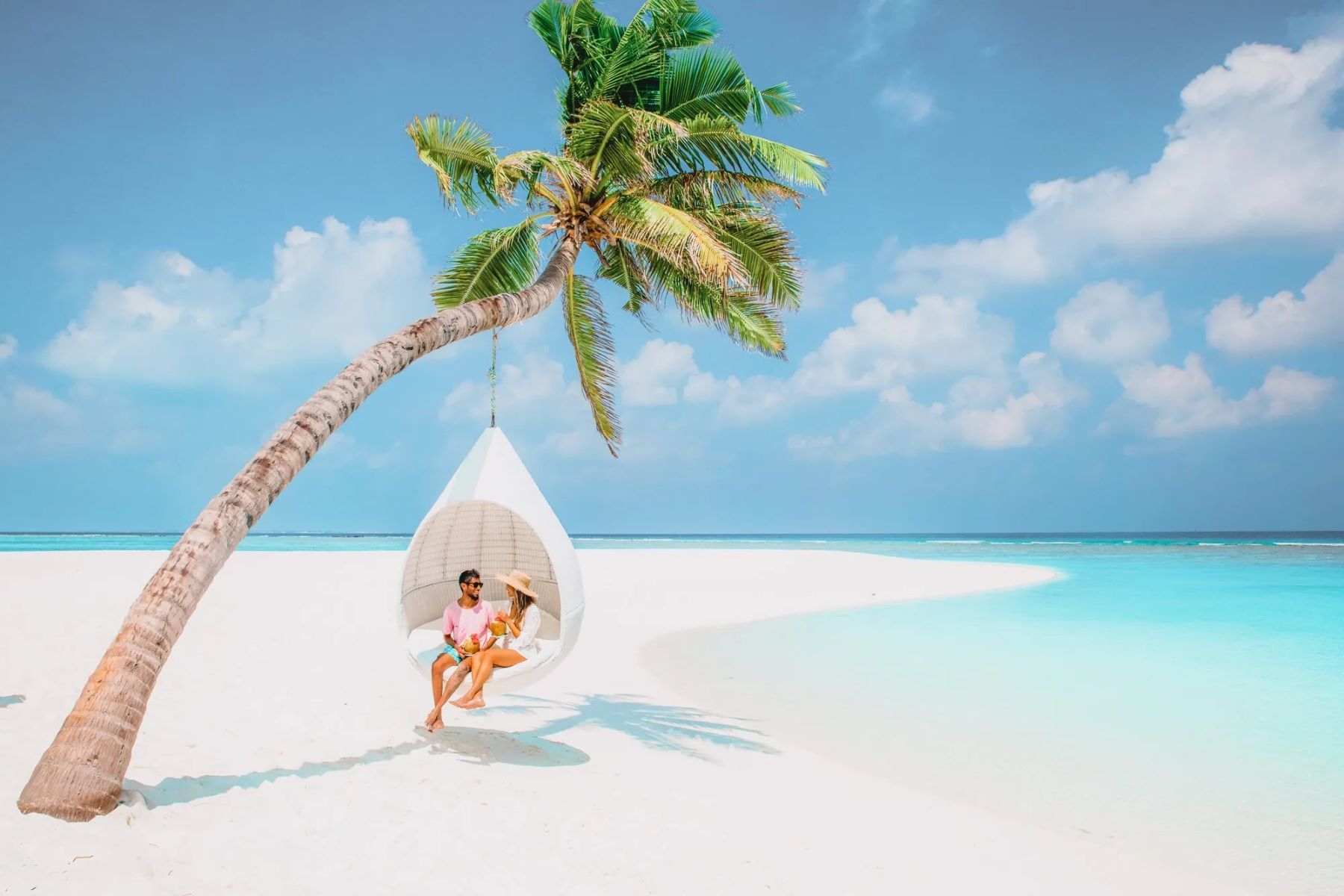
Why is the Maldives considered a tropical paradise? The Maldives, nestled in the heart of the Indian Ocean, is a dream destination for many. With its 26 natural atolls and over 1,200 coral islands, this nation boasts some of the world's most stunning white sand beaches and crystal-clear waters. The vibrant marine life, including manta rays and whale sharks, makes it a haven for divers and snorkelers. Luxurious resorts offer unparalleled relaxation and romance, perfect for honeymooners. The rich culture, deeply rooted in Islamic traditions, adds a unique charm. Despite modern challenges like rising sea levels, the Maldives remains an enchanting getaway.
Key Takeaways:
- The Maldives, a tropical paradise in the Indian Ocean, is known for its stunning beauty, rich cultural heritage, and vibrant marine life. With 26 atolls and 1,200 islands, it's a unique destination for travelers seeking luxury and natural wonders.
- The Maldives faces environmental challenges due to rising sea levels, but it remains a safe and popular tourist destination. Its unique cultural practices, high life expectancy, and commitment to marine conservation make it a fascinating and diverse country.
Location and Geography
The Maldives, a tropical paradise in the Indian Ocean, is known for its stunning beauty and unique geography. Let's dive into some fascinating facts about this enchanting destination.
-
The Maldives is located in the north-central Indian Ocean, with its closest neighbors being India and Sri Lanka to the northeast. The country is made up of 26 natural atolls, 1,200 coral islands, and sandbanks.
-
Despite the large number of islands, only approximately 200 are inhabited. Roughly 160 islands are developed purely for tourism, with more than 40% of the population living in the capital city, Male.
Language and Religion
The Maldives has a rich cultural heritage deeply rooted in its language and religion. Here are some intriguing details about these aspects.
-
The official language in the Maldives is Dhivehi, which is closely related to the Sinhala language of Sri Lanka. English is also widely spoken due to the tourism industry.
-
Islam is the official religion of the Maldives, and the Maldivian culture is deeply rooted in Islamic traditions. The constitution requires that citizenship status is based on adherence to the state religion, making 100% of the Maldivian population Muslim.
Historical Background
The Maldives has a unique and fascinating history that has shaped its culture and traditions. Let's explore some key historical facts.
-
Archaeological evidence suggests that the Maldives has been inhabited since approximately 1500 BC. It is believed that the island was first settled by Aryan immigrants, who also colonized Sri Lanka at the same time.
-
Before converting to Islam in 1153 CE, Buddhists are thought to have arrived from Sri Lanka and settled briefly. The islands had been used as a stopping point by Arab traders on their way to Asia, and many of them decided to stay.
Unique Geology and Marine Life
The Maldives is renowned for its unique geology and vibrant marine life. Here are some captivating facts about these natural wonders.
-
The Maldives is made up of coral atolls that formed after the eruption of ancient underwater volcanoes. The country's unique geology is a result of these volcanic activities, which created the coral reefs that protect the islands from monsoon season swells.
-
The beaches of the Maldives are famous for their white sand, which is made from coralline and not quartz like other kinds of sand. This kind of sand is very rare and constitutes only 5% of all the beaches in the world.
-
The Maldives is renowned for its rich marine life, coral reefs, and vibrant marine species. Divers can encounter manta rays, whale sharks, and an array of fascinating underwater creatures.
-
The Maldives is one of the best places to spot whale sharks, the largest fish in the ocean. These enormous beasts can grow up to 20 feet long and are harmless to humans, feeding on plankton.
Environmental Concerns
The Maldives faces significant environmental challenges due to its low elevation and rising sea levels. Here are some important facts about these issues.
-
In 2009, President Mohamed Nasheed organized an underwater cabinet meeting to raise awareness about the dangers of rising sea levels and the impact of human activities on freshwater resources. The meeting was held at the bottom of the sea, and the signed wetsuits were auctioned to raise money for coral reef protection.
-
The Maldives is the flattest country in the world, with an average altitude of 1.8 meters (6 feet) above sea level. The highest point in the country is 2.3 meters (7.5 feet) above sea level, found on Villingili Island.
-
Due to its low elevation and rising sea levels, the Maldives is experiencing rapid submersion into the ocean. If current trends continue, the island nation could be completely submerged by 2030.
Cultural Significance and Economy
The Maldives has a rich cultural heritage and a thriving economy driven by tourism. Let's delve into some interesting facts about these aspects.
-
The Maldives has 26 atolls and 1,200 islands, with almost 200 inhabited and 110 left purely for tourism and luxury purposes. Traveling via the ocean is a familiar feat in this nation.
-
In the 1800s, cowry shells were used as a method of international trading currency. The Maldives had an abundance of these shells, which were lightweight and could not be forged, making them an ideal substitute for money. Although the shell-money trade is long gone, the cowry shell remains as the emblem of the Maldives Monetary Authority.
-
The Maldives has a rich cultural heritage, deeply rooted in Islamic traditions. The country's history is marked by significant events such as the introduction of Islam in the 12th century and the expulsion of the Portuguese in the 16th century.
Modern-Day Maldives
The Maldives is a popular destination for tourists seeking luxury and natural beauty. Here are some facts about the modern-day Maldives.
-
The Maldives has a tropical monsoon climate, with two distinct seasons: the dry season (November to April) and the wet season (May to October). The temperature remains warm throughout the year, making it an ideal destination for sun-seekers.
-
The Maldives is famous for its luxurious resorts, which are scattered across the country. These resorts offer picture-perfect beaches, romantic sunsets, and luxurious amenities, making the Maldives a popular destination for honeymooners.
-
The Maldives is home to a UNESCO Biosphere Reserve called Baa Atoll. This reserve supports one of the world’s largest groups of coral reefs and is a haven for marine biologists and nature enthusiasts.
-
The Maldives has a rich marine biodiversity, with over 2,000 species of fish, 200 species of coral, and numerous other marine creatures. This diversity makes the Maldives a paradise for marine biologists and nature enthusiasts.
-
The Maldives is home to the world’s first underwater hotel, the Conrad Maldives Rangali Island. Guests at this unique hotel can enjoy panoramic views of the ocean and experience the beauty of marine life up close.
-
The Maldives is a diverse country when it comes to biological diversity. It hosts five of the seven species of marine turtles in the world: the Olive Ridley turtle, the loggerhead, the leatherback, the green turtle, and the hawksbill.
Safety and Unique Practices
The Maldives is known for its safety and unique cultural practices. Here are some interesting facts about these aspects.
-
The Maldives is considered one of the safest tourist destinations in the world. The islands are isolated from each other, and their small size makes them manageable and secure.
-
The Maldives was founded by an Indian prince who was sent to exile. Sometime around 270 BC, an Indian prince was sent from the kingdom of Kalinga as a punishment to run over the islands of Maldives. Sri Soorudasaruna Adeettiya is said to be the first king of the island, which was then called Dheeva Maari, and established the Adeetta Dynasty in the Maldives.
-
Unlike its western counterparts, the Maldives does not recognize Saturday and Sunday as the weekend. Instead, Friday and Saturday are considered weekend days, making it a unique cultural practice in the country.
-
The Maldivian flag consists of a green rectangle in the middle with a crescent moon on it, enclosed by a red rectangle. The red represents the sacrifice of the people who lost their lives protecting the country, the green represents peace and prosperity, and the crescent moon represents Islam.
Economic and Political Landscape
The Maldives has a dynamic economic and political landscape shaped by tourism and historical events. Here are some key facts about these aspects.
-
The economy of the Maldives revolves around tourism, with scores of islands developed for the top end of the tourist market. This has fueled economic growth and made tourism a significant contributor to the country's GDP.
-
The Maldives has had an unsettled political history since the electoral defeat of long-serving President Maumoon Abdul Gayoom in 2008. The country has experienced coups and changes in leadership, with President Ibrahim Mohamed Solih taking office in 2018.
-
In 2020, the Maldives rejoined the Commonwealth after a period of absence. This move was seen as a significant step towards re-engaging with the international community and strengthening diplomatic ties.
-
As of 2023, Mohamed Muizzu is the president-elect of the Maldives after defeating incumbent President Ibrahim Mohamed Solih in the September 2023 presidential elections. Muizzu is seen as a supporter of China's interests in the country, which has implications for the country's strategic position in the Indian Ocean.
-
Non-state media in the Maldives have come under pressure, and journalists operate in a climate of violence and impunity. A 2016 law criminalized defamation, allowing the authorities to punish media for content deemed defamatory.
Life and Population
The Maldives boasts a high life expectancy and a relatively small population. Here are some facts about the life and population in the Maldives.
-
The life expectancy in the Maldives is high, with men living up to 77 years and women up to 81 years on average. This is attributed to good healthcare services and a relatively stable environment.
-
The population of the Maldives is approximately 392,000, with the majority living in the capital city, Male. The population is predominantly Muslim, with Dhivehi and English being the primary languages spoken.
Biodiversity and Conservation
The Maldives is home to a diverse array of marine life and is committed to conservation efforts. Here are some important facts about biodiversity and conservation in the Maldives.
-
The Maldives is home to a diverse array of marine life, including coral reefs and numerous species of fish. Efforts are being made to conserve this biodiversity, including the protection of coral reefs and the preservation of marine habitats.
-
The Baa Atoll, a UNESCO Biosphere Reserve, is a significant area for marine conservation efforts.
Maldives: A Tropical Paradise
The Maldives is a stunning destination that offers a mix of natural beauty, rich culture, and fascinating history. With its pristine white sand beaches, crystal-clear waters, and vibrant marine life, it's no wonder travelers flock here. The country's unique geology, luxurious resorts, and rich marine biodiversity make it a top choice for honeymooners and nature enthusiasts alike.
Despite challenges like rising sea levels and political changes, the Maldives remains a paradise. Its luxury resorts, UNESCO Biosphere Reserve, and the world's first underwater hotel add to its allure. The Maldivian culture, deeply rooted in Islamic traditions, and the country's historical significance further enrich the experience.
Whether you're diving with whale sharks, relaxing on a beach, or exploring the capital city, Male, the Maldives offers an unforgettable tropical getaway.
Frequently Asked Questions
Was this page helpful?
Our commitment to delivering trustworthy and engaging content is at the heart of what we do. Each fact on our site is contributed by real users like you, bringing a wealth of diverse insights and information. To ensure the highest standards of accuracy and reliability, our dedicated editors meticulously review each submission. This process guarantees that the facts we share are not only fascinating but also credible. Trust in our commitment to quality and authenticity as you explore and learn with us.


